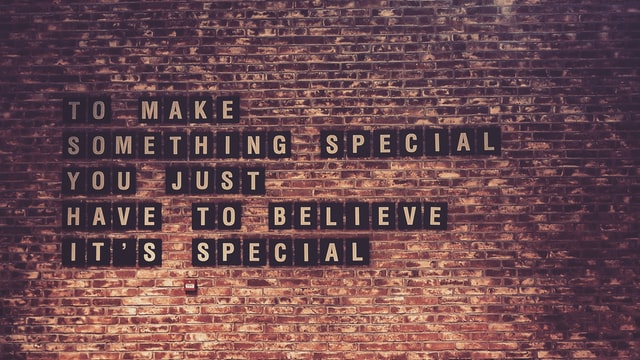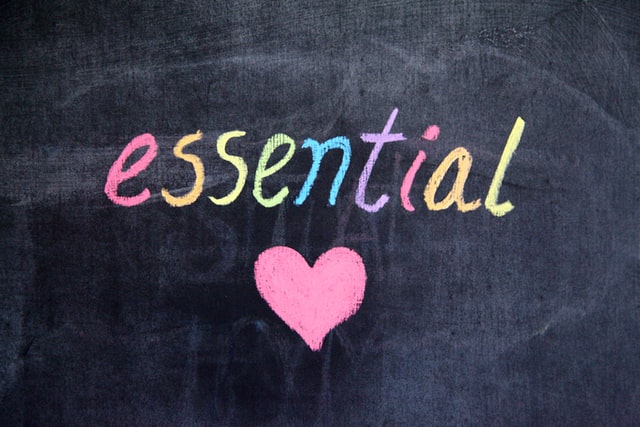
Hello Everyone,
Our identity emerges out of our habits. You are not born with preset beliefs. Every belief, including those about yourself, is learned and conditioned through experience. More precisely, your habits are how you embody your identity. For example :- When you make your bed each day, you embody the identity of an organized person. When you write each day, you embody the identity of a creative person. When you train each day, you embody the identity of an athletic person.
The more you repeat a behaviour, the more you reinforce the identity associated with that behavior.
In fact, the word identity was originally derived from the Latin words essentitas, which means being, and, identidem, which means repeatedly. Your identity is literally your “repeated conduct”. Whatever your identity is right now, you only believe it because you have proof of it. Let me give you some convincing examples :- If you go to church or Temple every Sunday for twenty years, you have evidence that you are religious. If you study biology for one hour every night, you have evidence that you are studious. If you go to the gym even when it’s snowing, you have evidence that you are committed to fitness. The more evidence you have for a belief, the more strongly you will believe it.
For most of my early life, I didn’t consider myself a blogger and Life skill coach. If you were to ask any of my school teachers or college professors, or colleagues, they would tell you that I was just a regular guy: certainly not a standout. When I began my writings , I published a new article every week and gradually increase its frequency in various others forms like my Newsletter letter ( Sunday Retazo) . As the evidence grew, so did my identity as a blogger and a writer on productivity and cerebral happiness. I didn’t start out as a writer. I became a one through my habits.
Your habits are not the only actions that influence your identity, but by virtue of their frequency they are usually the most important ones. Each experience in life modifies your self-image, but it’s unlikely you would consider yourself a soccer player because you kicked a ball once or an artist because you scribbled a picture. As you repeat these actions, however, the evidence accumulates and your self-image begins to change. The effect of one-off experiences tends to fade away while effect of habits gets reinforced with time, which means your habits contribute most of the evidence that shapes your identity. In this way, the process of building habits is actually the process of becoming yourself. This is a gradual evolution. We do not change by snapping our fingers and deciding to be someone entirely new. We change bit by bit, day by day, habit by habit. We are continually undergoing microevolutions of the self.
Every action you take is a kind of vote for the type of person you wish to become. If you finish a book, then perhaps you are the type of person who likes reading. If you go to the gym, then perhaps you are the type of person who likes exercise. If you practice playing the guitar, perhaps you are the type of person who likes music. Each habit is like a suggestion to yourself: “Hey, maybe this is who I am.”
No single instance will transform your beliefs, but as the votes build up, so does the evidence of your new identity. This is one reason why meaningful change does not require radical change.
Small habits can make a meaningful difference by providing evidence of a new identity.
If a change is meaningful, it actually is big. That’s the paradox of making small improvements. Putting this all together, you can see that habits are the path to changing your identity.
The most practical way to change who you are is to change what you do.
- Each time you write a page, you are a writer.
- Each time you practice the violin, you are a musician.
- Each time you start a workout, you are an athlete.
- Each time you encourage your employees, you are a leader.
Each habit not only gets results but also teaches you something far more important: to trust yourself. You start to believe you can actually accomplish these things. When the votes mount up and the evidence begins to change, the story you tell yourself begins to change as well.
Of course, it works the opposite way, too. Every time you choose to perform a bad habit, it’s a vote for that identity. The good news is that you don’t need to be perfect. In any election, there are going to be votes for both sides. You don’t need a unanimous vote to win an election; you just need a majority. It doesn’t matter if you cast a few votes for a bad behavior or an unproductive habit. Your goal is simply to win it majority of the time.
This is why I am a great advocate of starting with incredibly small actions (small votes still count!) and building consistency. Use the 2-Minute Rule to get started. New identities require new evidence. If you keep casting the same kind of votes you’ve always casted, you’re going to get the same results you’ve always had.
The thumb rule is :- If nothing changes, nothing is going to change.
Let me know what you think? I’d love your feedback. If you haven’t already then sign up for a weekly dose just like this here.
Get in touch… — JOE’s LIFE SKILLS LAB/Joe Sehrawat


